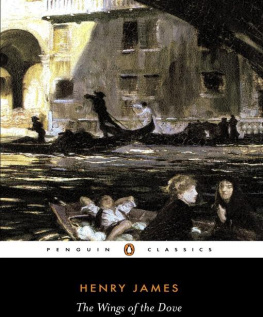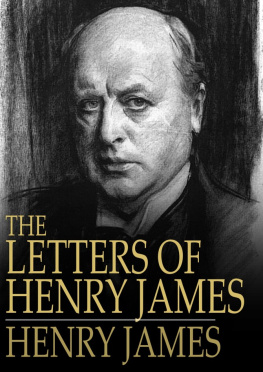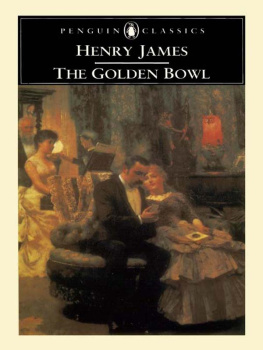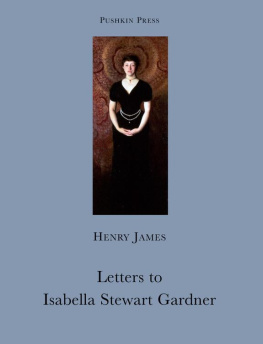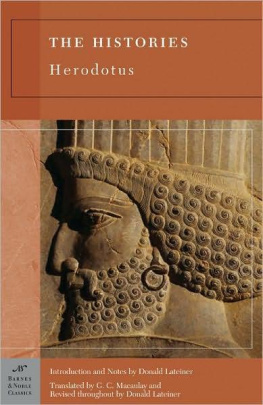Henry James
The writer Henry James was born into a wealthy family in New York City in 1843. His father, Henry, Sr., was a religious free-thinker and follower of the philosopher Swedenborg, and associated with many of the literary men of his day, including Nathaniel Hawthorne and Ralph Waldo Emerson. Young Henry was educated privately in New York, Geneva, Paris, and London; the family lived alternately in Europe and the United States for much of his childhood.
He began his literary career writing for magazines. Having dropped out of Harvard Law School to pursue writing, he associated with the literary set in Cambridge, Massachusetts, and was a good friend of budding novelist and critic William Dean Howells. In 1864 Jamess first published piece of fiction, the story A Tragedy of Error, appeared in the Continental Monthly. He also wrote reviews and articles for the Atlantic Monthly and the Nation. He frequently traveled to Europe and in 1876 settled permanently in London.
James is often cited as one of literatures great stylists; it has been said that his writing surrounds a subject and illuminates it with a flickering light, rather than pinning it down; according to Virginia Woolf in her diaries, he spoke in the same way. His style became more and more indirect as he moved from his early period, when he produced novels that considered the differences between American and European culture and characterRoderick Hudson (1876), The American (1877), The Europeans (1878), Daisy Miller (1879), Washington Square (1881), and The Portrait of a Lady (1881)to his middle period, when he wrote two novels about social reformers and revolutionaries, The Bostonians and The Princess Casamassima, both in 1886, as well as the novellas The Aspern Papers (1888) and The Turn of the Screw (1898).
In 1898 James retreated to Lamb House, a mansion he had purchased in Rye, England. There he produced the great works of his final period, in which in complex prose he subtly portrayed his characters inner lives: The Wings of the Dove (1902), The Ambassadors (1903), and The Golden Bowl (1904). He returned to the United States for the last time to supervise production of a twenty-six-volume edition of his most important fictional works that was published between 1907 and 1917. The American Scene (1907), an account of his last journey to America, is highly critical of his native land. He became a British citizen in 1915. Shortly after receiving the Order of Merit, Henry James died, on February 28, 1916, leaving behind a prodigious body of work: twenty completed novels, 112 stories, and twelve plays, as well as voluminous travel writing and literary journalism and criticism.
Comments & Questions
In this section, we aim to provide the reader with an array of perspectives on the text, as well as questions that challenge those perspectives. The commentary has been culled from sources as diverse as reviews contemporaneous with the work, letters written by the author, literary criticism of later generations, and appreciations written throughout the works history. Following the commentary, a series of questions seeks to filter Henry Jamess The Wings of the Dove through a variety of points of view and bring about a richer understanding of this enduring work.
Comments
WILLIAM JAMES
I have read The Wings of the Dove (for which all thanks!) but what shall I say of a book constructed on a method which so belies everything that I acknowledge as law? Youve reversed every traditional canon of story-telling (especially the fundamental one of telling the story, which you carefully avoid) and have created a new genre littraire which I cant help thinking perverse, but in which you nevertheless succeed.
from a letter to Henry James (Fall 1902)
J. P. MOWBRAY
In trying to form anything like a comprehensive estimate of Mr. Jamess mature work, the effeminacy of it has to be counted with. One cannot call it virile, andwith the best examples still with ushardly Saxon. from Critic (November 1902)
from Critic (November 1902)
SATURDAY
[The Wings of the Dove] consists of 576 closely printed pages. We were curious to know the average number of dashes, commas and semi-colons on a page; and we found the calculation entirely beyond our powers. Suffice it to say it is enormous; and most of these interruptions serve no purpose save that of making the reading more difficult. The effect is irritating: what might have been clean prose is broken, finicked, piffled away. Yet we see plainly enough that such lame writing is essential to the effect Mr. James wished to get. He wanted to make us feel all those artificial, subtle, trifling or meaningless changes of mood; and the more he makes us feel them the more artificial, trifling, meaningless we find them, and the less inclined we are to read on. We even suggest that the achievement of such a prose has become with Mr. James somewhat of an end in itself. The incessant perhaps -es, and consciousness of something deeper still, and clearly, as yet, seeing nothingthese not only give that effect of blurred vision and lack of definite intention, but weave into a word-tissue which Mr. James seems to like and which we heartily dislike. It is a word-tissue that hides the authors thoughtthat gives one a sense of his reserve, aloofness. There is no energy, passion, color, and because there is no motion, there is no rhythm in this prose. The prose becomes as trivial as the trivial moods aroused by trivial middle-class things it is meant to express; and not from Mr. Henry James nor another do we require 576 pages of such prose fine-spun out with such an object.
After all, this kind of writing, crabbed, finicking, tedious in its struggle to be exact about nothing, marks a strong reaction against the kind that prevailed until twenty years ago or even later.
January 1903
JOSEPH CONRAD
One is never set at rest by Mr. Henry Jamess novels. His books end as an episode in life ends. You remain with the sense of the life still going on; and even the subtle presence of the dead is felt in that silence that comes upon the artist-creation when the last word has been read. It is eminently satisfying, but it is not final. Mr. Henry James, great artist and faithful historian, never attempts the impossible.
from North American Review (January 1905)
GEORGE MOORE
Ive read nothing of Henry Jamess that didnt suggest a scholar; so there shall be none of the old tauntswhy does he not write complicated stories? Why does he always avoid decisive action? In his stories a woman never leaves the house with her lover, nor does a man ever kill another man or himself. Why is nothing ever accomplished ? In real life murder, adultery, and suicide are of common occurrence; but Mr. Jamess people live in a calm, sad, and very polite twilight of volition. Suicide or adultery has happened before the story begins, suicide or adultery happens some years after the characters have left the stage, but in front of the reader nothing happens.... Is there really much to say about people who live in stately houses and eat and drink their fill every day of the year? The lady, it is true, may have a lover, but the pen finds scanty pasturage of the fact; and in Jamess novels the lady only considers the question on the last page, and the gentleman looks at her questioningly.
from Confessions of a Young Man (1916)
VIRGINIA WOOLF
How consciously Henry James set himself to look for the weak place in our amour of insensibility it is not necessary to decide. Let us turn to another story,

